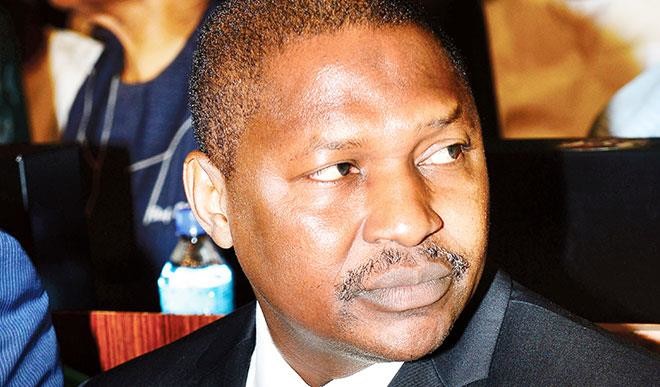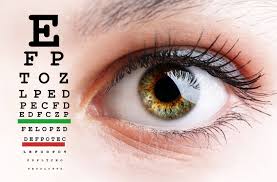The Attorney-General of the Federation and Minister of Justice, Abubakar Malami (SAN) said on Thursday that he and his office has no rift with the Economic and Financial Crimes Commission (EFCC).
Malami stated this during a chat with journalists in Abuja at sideline of a press briefing on the forthcoming National Summit on justice.
The AGF who was asked if a letter he wrote to the EFCC over prosecution of high profile cases was causing rift between both offices, simply said “there is no rift”. Malami said:
“The summit is expected to bring together stakeholders in the justice sector to consider, adopt and validate the draft National Policy on Justice developed by a technical committee constituted by the Ministry of Justice in 2016.
“Given the challenges militating against an effective administration of justice and the peculiarity of our federal system, there is the need to harmonise and integrate the various reform initiatives into a clearly articulated National Justice Policy.”
The summit which starts on August 8 is expected to be declared open by Acting President Yemi Osinbajo.
The Attorneys-General, state commissioners for Justice and Solicitors-General, Chief Judges of all the 36 states of the federation, Chief Judge of Federal High Court and the Acting Chairman of the Economic and Financial Crimes Commission (EFCC) are among others dignitaries expected as participants.
Meanwhile, the Economic and Financial Crimes Commission (EFCC), also said on Thursday that there is no conflict between its and the Attorney General of Federation Abubakar Malami (SAN) over the directive to submit case files of 35 ex- governors and ‘serious ‘ cases.
The Commission expressed concern in a statement signed by its spokesman Mr. Wilson Uwujaren over “the near-daily reportage of either the existence of a face-off or an impending and damaging conflict between the Commission and the office of the Attorney-General of the Federation and Minister of Justice, Abubakar Malami (SAN).
However, the statement was silent on the remark of the Special Adviser on Legal Matter to the President, Obono – Obla that ignited media reportage following his indictment of the EFCC of being reluctanted to respond to AGF directive asking it to submit case files of 35 ex- governors and other ” serious” cases, on which he added that the Commission would be reported to the presidency for obstructing the anti- corruption war .
The EFCC said that “notwithstanding the fact that it has been consistent in its position that there is absolutely no conflict (actual or impending) with the AGF, some unscrupulous persons have continued to push the false narrative into media headlines.”
It also said is in compliance with all provisions of law and has no intention to stoke a misunderstanding over requests from the office of the Attorney-General and Minister of Justice.
“Furthermore, the Commission’s mandate, operational philosophy and the conduct and pronouncements of its officials do not countenance any activity on the fringes of the law.”
“It is therefore untenable for there to be any suggestion that the EFCC or the Commission’s principal officials are either in conflict with or readying for a “showdown”
with the AGF or other officials of government. Any such “conflicts” being paraded in the media exist only in the apparently fertile imaginations of corrupt elements angling to knock heads together in furtherance of their own pro-corruption agenda.
All the brouhaha raised in recent days over a non-existent conflict between the EFCC and the office of the AGF only go to underline the fact that corruption can and is fighting back in a variety of ways, it claimed.
The EFCC , the statement opined ” is a creation of statute and its operations and officials being as they are, guided by the firm, unambiguous provisions of those laws and regulations, are not and can never be in contravention of the law or opposition to constituted authority.




